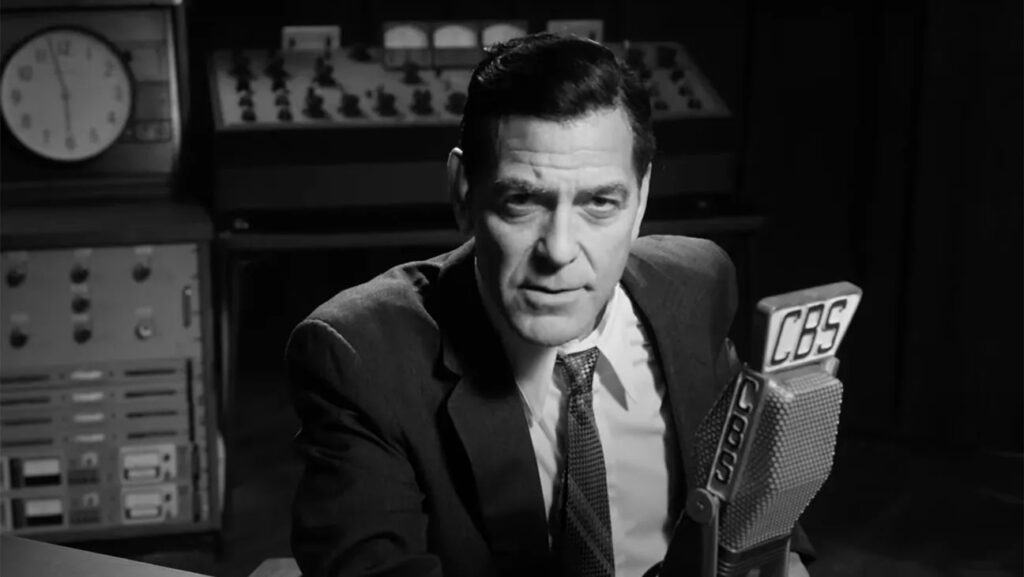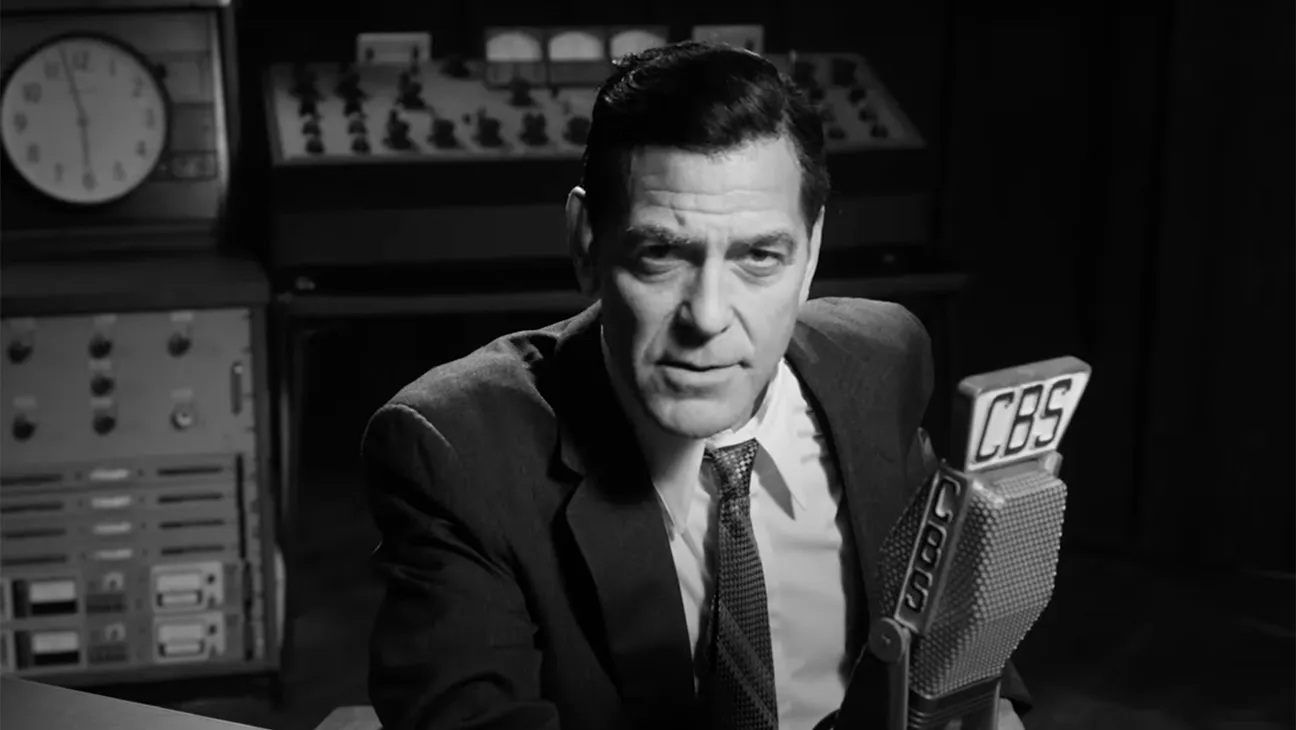
Good Night, and Good Luck, starring George Clooney on Broadway is a wake-up call about the ethical courage we desperately need today—a timely parable based on a pivotal moment in American history when journalism was not only a public service, but a moral stand.
The play recalls the courage of broadcast journalist Edward R. Murrow as he confronted Senator Joseph R. McCarthy, whose fear-driven campaign to root out alleged Communist influence plunged the nation into paranoia and suspicion. In a 1950 speech, McCarthy warned, “The State Department is infested with Communists”—a false claim that exemplified the alarmist and accusatory rhetoric that fueled the Red Scare and gave rise to the phenomenon now known as McCarthyism. Murrow’s principled resistance to that climate of fear remains a powerful reminder of what ethical leadership in journalism looks like.
Murrow didn’t just report the news—he held a mirror to the country, reminding us that fear can be manipulated, truth can be twisted, and silence can become complicity. “We must not confuse dissent with disloyalty,” Murrow said in his famous broadcast. “We will not walk in fear, one of another. We will not be driven by fear into an age of unreason.”
Those words echo powerfully today. As a current president continues to wreak havoc on the foundational principles of democracy—truth, accountability, justice—we are in desperate need of voices like Murrow’s: voices grounded not in partisanship, but in principle. The kind of moral clarity that calls out corruption and deceit not because it’s politically convenient, but because it’s ethically necessary.
We saw a glimpse of that moral courage recently when Democratic Senator Cory Booker stood for 25 hours on the Senate floor, addressing the American people about the dangers of Donald Trump’s fear-based rhetoric. These are not idle threats. They are calculated efforts to undermine public trust, intimidate opponents, alienate allies, and weaken the institutions that have long safeguarded our freedoms.
Even more troubling than the rhetoric itself is the number of Americans who have chosen to look the other way. Whether out of fatigue, cynicism, or tribal loyalty, too many have ignored or rationalized behavior that would have once been universally condemned. We are turning a blind eye not just to a dangerous man, but to the ethical values that have sustained this country through war, depression, and crisis.
America’s strength has never come solely from its military might or economic power. It has come from its moral standing—the idea that we strive to be a nation of laws, of fairness, of decency. We have never been perfect, but we have aspired to be better. That aspiration has made us a guiding light for others around the world. Abandoning that aspiration now, in favor of fear and division, is not only a betrayal of our history—it’s a threat to our future.
We need journalists who ask hard questions, leaders who tell hard truths, and citizens who demand integrity over ideology. The choice before us is not just political—it is profoundly ethical.
As Murrow reminded us, “This instrument [television] can teach, it can illuminate; yes, and it can even inspire. But it can do so only to the extent that humans are determined to use it to those ends.”
It’s time we return to those ends.
Comments
Leave a Comment












Here you are again Jim, looking at truth, accountability, justice and we must look at our ethical values.